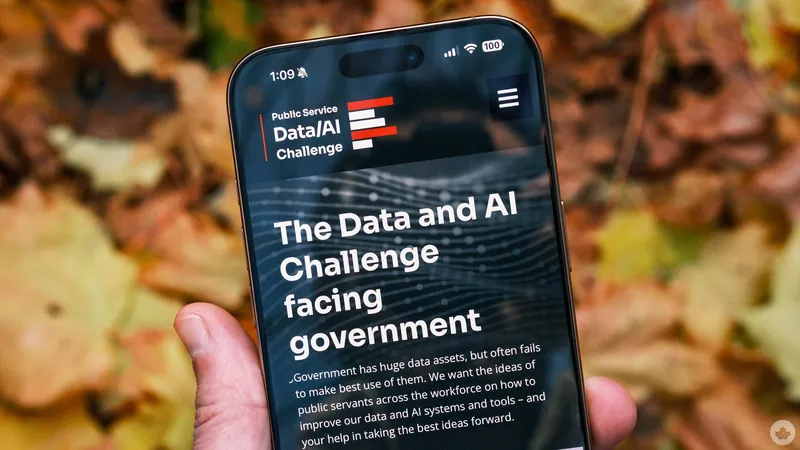
Canada’s Bold Move: Harnessing AI to Revolutionize Public Services!
2024-12-03
Author: Charlotte
Canada’s Bold Move: Harnessing AI to Revolutionize Public Services!
In an innovative approach to modernizing public services, the Canadian federal government has launched the “Public Service Data/AI Challenge,” inviting its employees to share their ideas on how to effectively integrate artificial intelligence to enhance operations. This initiative marks its third wave of proposals this year, emphasizing a commitment to a tech-driven future.
The challenge has already produced exciting results. In the 2022-23 cycle, an innovative employee suggested using ChatGPT to completely revamp the Department of Agriculture’s search function. This idea has since materialized into a fully functional software, showcasing the potential of AI to significantly improve efficiency in government processes. In the following year, another initiative aimed to consolidate various datasets from Natural Resources Canada, seeking insights into how different interventions can optimize domestic energy efficiency.
The program is currently in its idea-gathering phase, where employees can propose new AI-centric concepts. Following this, promising ideas will progress to team development, where multidisciplinary groups will evaluate their practicality. Finally, the most viable proposals will be refined and pitched to determine which will receive the necessary support for full implementation.
Elise Legendre, the Chief Data Officer of Agriculture and Agri-Food Canada, encourages participants, stating, “Think about all the possibilities that can arise from using data differently. You don’t need to possess all the answers or have a fully-formulated idea to participate.” This sentiment resonates with many as it underscores the value of creativity and collaborative thinking in the public sector.
Stephan Burt, Canada's Chief Data Officer, adds to the conversation by highlighting the inclusive nature of the initiative. He explains, “Even if you don’t have a personal idea on how to better utilize data, you can contribute. Our teams are looking for diverse skills from various organizations across all levels of seniority.” This opportunity to work in interdisciplinary, cross-departmental collaborations is seen as a vital stepping stone towards mastering digital technologies that will shape the public service landscape in the years to come.
As Canada embraces this exciting venture, it sets a precedent for other nations considering similar approaches, signaling a transformative era in how public services operate. Will these AI innovations lead to a more efficient, transparent, and effective government? Time will tell, but the potential is certainly thrilling!









 Brasil (PT)
Brasil (PT)
 Canada (EN)
Canada (EN)
 Chile (ES)
Chile (ES)
 España (ES)
España (ES)
 France (FR)
France (FR)
 Hong Kong (EN)
Hong Kong (EN)
 Italia (IT)
Italia (IT)
 日本 (JA)
日本 (JA)
 Magyarország (HU)
Magyarország (HU)
 Norge (NO)
Norge (NO)
 Polska (PL)
Polska (PL)
 Schweiz (DE)
Schweiz (DE)
 Singapore (EN)
Singapore (EN)
 Sverige (SV)
Sverige (SV)
 Suomi (FI)
Suomi (FI)
 Türkiye (TR)
Türkiye (TR)